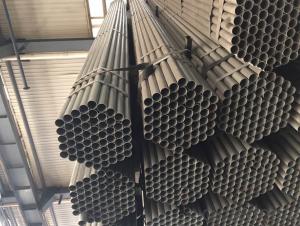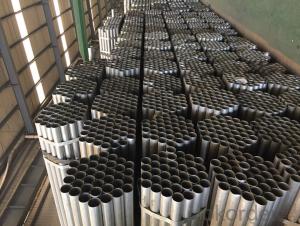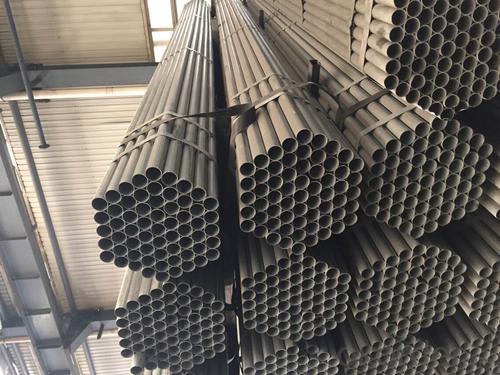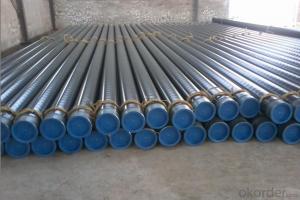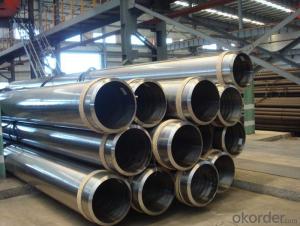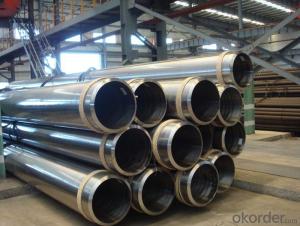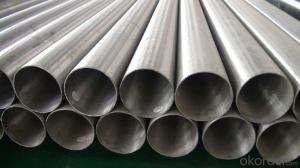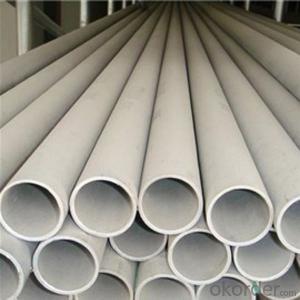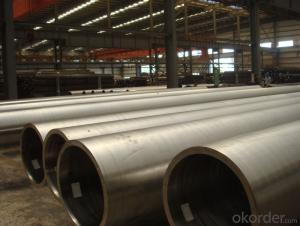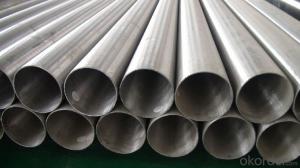Stainless Steel Welded Pipe ASTM A358/A312/A316
- Loading Port:
- China main port
- Payment Terms:
- TT or LC
- Min Order Qty:
- 45 m.t.
- Supply Capability:
- 9000 m.t./month
OKorder Service Pledge
OKorder Financial Service
You Might Also Like
1、Structure of Stainless Steel Welded Pipe ASTM A358/A312/A316 Description:
Stainless steel welded pipe is actually a cover term, covering a wide range of alloy and making them suitable for different attributes that are used in a very wide and large numbers of different industries.
Stainless steel pipe is resistant to erosion, highly flexible, powerful, easy to use, and can be done in distinct approaches, which means that more and more stainless steel was used as a construction material for large-scale, high impact buildings.
2、Main Features of the Stainless Steel Welded Pipe ASTM A358/A312/A316:
• High manufacturing accuracy
• High strength
• Good visual effect
•Reasonable price
3、Stainless Steel Welded Pipe ASTM A358/A312/A316 Images:
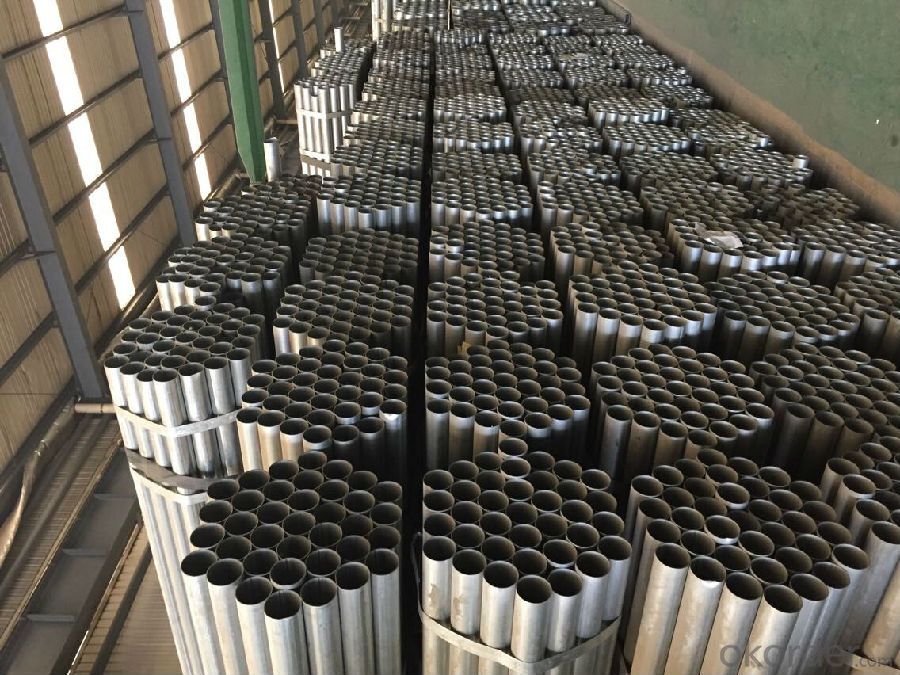
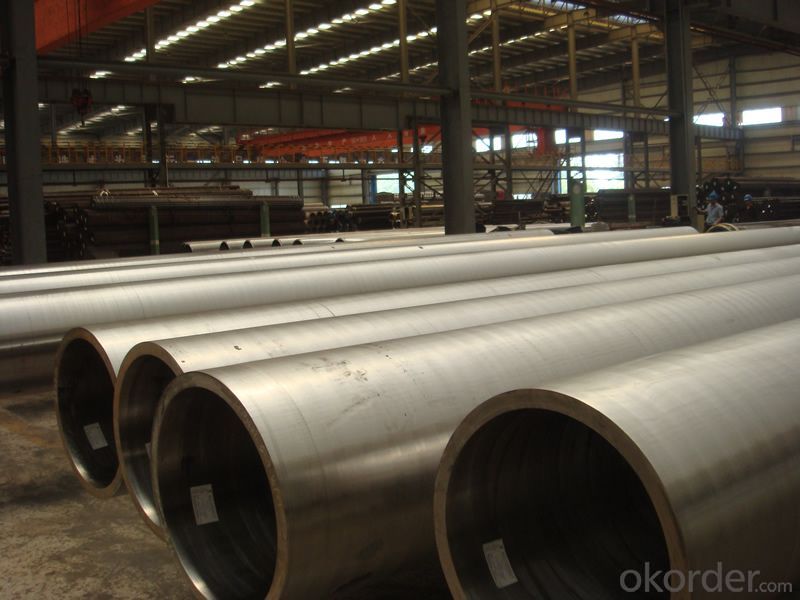
4、Stainless Steel Welded Pipe ASTM A358/A312/A778 Specification:
Size:
Outside diameter | Outside | Thickness | ||||
SCH 5S | SCH 10S | SCH 20S | SCH 40S | |||
(A) | (B) | mm | mm | mm | mm | mm |
350 | 14′ | 355.6 | 3.96 | 4.78 | 7.92 | 11.13 |
400 | 16′ | 406.4 | 4.19 | 4.78 | 7.92 | 12.7 |
450 | 18′ | 457.2 | 4.19 | 4.78 | 7.92 | 14.27 |
500 | 20′ | 508 | 4.78 | 5.54 | 9.53 | 15.09 |
550 | 22′ | 558.8 | 4.78 | 5.54 | 9.53 | 15.09 |
600 | 24′ | 609.6 | 5.54 | 6.35 | 9.53 | 17.48 |
650 | 26′ | 660.4 | 5.54 | 7.92 | 12.7 | 17.48 |
700 | 28′ | 711.2 | 5.54 | 7.92 | 12.7 | 17.48 |
750 | 30′ | 762 | 6.35 | 7.92 | 12.7 | 17.48 |
800 | 32′ | 812.8 |
| 7.9 | 12.7 | 17.48 |
Tolerances on dimensions table:
Standard | Outside(mm) | Thickness(mm) | Length(mm) | |
ASTM A312 | ≤48.26 | -0.4 | +No special provisions(Unspecified)-12.50% | Appoint LengthDefinite cut length+6.40 |
>48.26~114.30 | 0 | 0 | ||
>114.30~219.08 | 0.8 |
| ||
>219.08~457.20 | 1.6 |
| ||
>457~660 | -4 |
| ||
>660~864 | -5 |
| ||
>864~1219 | -5.6 |
| ||
JIS G3459 | <30.00 ±0.30≥30.00 ±1.00% | <2.00 ±0.20≥2.00 ±10% | Appoint LengthDefinite cut Length | |
5、FAQ of Stainless Steel Welded Pipe ASTM A358/A312/A778:
①How is the quality of your products?
Our products are manufactured strictly according to national and internaional standard, and we take a test on every pipe before delivered out. If you want see our quality certifications and all kinds of testing report, please just ask us for it.
Guaranteed: If products’ quality don’t accord to discription as we give or the promise before you place order, we promise 100% refund.
②How about price?
Yes, we are factory and be able to give you lowest price below market one, and we have a policy that “ for saving time and absolutely honest business attitude, we quote as lowest as possible for any customer, and discount can be given according to quantity”,if you like bargain and factory price is not low enough as you think, just don’t waste your time.Please trust the quotation we would give you, it is professional one.
③Why should you chose us?
Chose happens because of quality, then price, We can give you both.Additionally, we can also offer professional products inquiry, products knowledge train(for agents), smooth goods delivery, exellent customer solution proposals.Our service formula: good quality+good price+good service=customer’s trust
SGS test is available, customer inspection before shipping is welcome, third party inspection is no problem.
Any question, pls feel free to contact us !
- Q: What is the difference between nominal and actual pipe size?
- The nominal pipe size refers to the approximate inside diameter of a pipe, while the actual pipe size refers to the exact inside diameter. The nominal size is used for general identification purposes, while the actual size is more precise and is used for engineering calculations and pipe fittings.
- Q: Can steel pipes be used for oil and gas well production?
- Yes, steel pipes can be used for oil and gas well production. Steel pipes are commonly used in the oil and gas industry due to their high strength and durability, which allows them to withstand the harsh conditions of drilling and production processes. Additionally, steel pipes can efficiently transport oil and gas over long distances, making them a preferred choice in the industry.
- Q: How are steel pipes used in the power generation industry?
- Steel pipes are used in the power generation industry for a variety of applications, including transporting fluids such as steam, water, and fuel gases, as well as for structural support in power plants and for cooling systems.
- Q: How are steel pipes tested for mechanical strength?
- Steel pipes are typically tested for mechanical strength through various destructive and non-destructive testing methods. Destructive tests involve subjecting the pipes to tension, compression, or bending forces until failure occurs, allowing the measurement of their ultimate tensile strength, yield strength, and elongation. Non-destructive tests, such as ultrasonic testing, magnetic particle inspection, or radiographic examination, are also conducted to detect any internal or surface defects that may affect the mechanical strength of the pipes. These tests ensure that steel pipes meet the required standards and specifications in terms of their mechanical strength.
- Q: What are the different methods of pipe coating for steel pipes?
- There are several methods of pipe coating for steel pipes, including fusion-bonded epoxy (FBE) coating, three-layer polyethylene (3LPE) coating, three-layer polypropylene (3LPP) coating, and liquid epoxy coating. Each method offers different levels of protection against corrosion, abrasion, and other environmental factors, ensuring the durability and longevity of the steel pipes.
- Q: What are the common sizes of steel pipes?
- The common sizes of steel pipes vary depending on the application and standards followed. However, some common sizes include 1/8 inch, 1/4 inch, 3/8 inch, 1/2 inch, 3/4 inch, 1 inch, 1.25 inches, 1.5 inches, 2 inches, 2.5 inches, 3 inches, 4 inches, 5 inches, 6 inches, 8 inches, 10 inches, 12 inches, 14 inches, 16 inches, 18 inches, 20 inches, 24 inches, 30 inches, 36 inches, 42 inches, and 48 inches.
- Q: What is the tensile strength of steel pipes?
- The tensile strength of steel pipes can vary depending on the grade and type of steel used. However, on average, steel pipes typically have a tensile strength ranging from 300 to 700 megapascals (MPa).
- Q: Are steel pipes suitable for use in automotive industries?
- Yes, steel pipes are suitable for use in automotive industries. They are known for their strength, durability, and resistance to high temperatures and pressure, making them an ideal material for various applications such as exhaust systems, fuel lines, and structural components in automobiles. Steel pipes also offer excellent corrosion resistance, ensuring long-lasting performance in harsh environments.
- Q: What are the different types of steel pipe unions?
- There are several different types of steel pipe unions, including threaded unions, socket weld unions, and butt weld unions.
- Q: What is the difference between internal threading and external threading of steel pipes?
- Internal threading and external threading are two different methods used to create threads on steel pipes. The main difference between them lies in the location of the threads. Internal threading refers to the process of cutting threads on the inside surface of a steel pipe. This method involves using a tool or a die to remove material from the inner diameter of the pipe, creating a helical groove. The resulting threads can be used to connect the pipe to other components, such as fittings or valves. On the other hand, external threading involves cutting threads on the outside surface of a steel pipe. This process usually requires the use of a threading die or a lathe to remove material from the outer diameter of the pipe, leaving behind a helical groove. The external threads allow the pipe to be connected to other components or fittings that have corresponding internal threads. The choice between internal and external threading depends on the specific application and the requirements of the project. Internal threading is often preferred when the pipe needs to be connected to components that have external threads, such as fittings or valves. External threading, on the other hand, is typically used when the pipe needs to be connected to components with internal threads, or when the pipe is intended to be screwed into a threaded hole or coupling. In summary, the main difference between internal threading and external threading of steel pipes is the location of the threads – internal threads are cut on the inside surface of the pipe, while external threads are cut on the outside surface. The choice between these methods depends on the specific application and the type of connections required.
Send your message to us
Stainless Steel Welded Pipe ASTM A358/A312/A316
- Loading Port:
- China main port
- Payment Terms:
- TT or LC
- Min Order Qty:
- 45 m.t.
- Supply Capability:
- 9000 m.t./month
OKorder Service Pledge
OKorder Financial Service
Similar products
Hot products
Hot Searches
Related keywords
